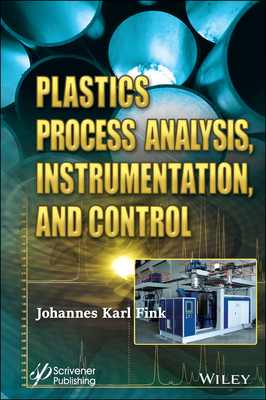Plastics Process Analysis, Instrumentation, and Control
暫譯: 塑料加工分析、儀器與控制
Fink, Johannes Karl
- 出版商: Wiley
- 出版日期: 2021-03-30
- 售價: $7,830
- 貴賓價: 9.5 折 $7,439
- 語言: 英文
- 頁數: 416
- 裝訂: Hardcover - also called cloth, retail trade, or trade
- ISBN: 1119795737
- ISBN-13: 9781119795735
海外代購書籍(需單獨結帳)
相關主題
商品描述
This book focuses on plastics process analysis, instrumentation for modern manufacturing in the plastics industry.
Process analysis is the starting point since plastics processing is different from processing of metals, ceramics, and other materials. Plastics materials show unique behavior in terms of heat transfer, fluid flow, viscoelastic behavior, and a dependence of the previous time, temperature and shear history which determines how the material responds during processing and its end use. Many of the manufacturing processes are continuous or cyclical in nature. The systems are flow systems in which the process variables, such as time, temperature, position, melt and hydraulic pressure, must be controlled to achieve a satisfactory product which is typically specified by critical dimensions and physical properties which vary with the processing conditions.
Instrumentation has to be selected so that it survives the harsh manufacturing environment of high pressures, temperatures and shear rates, and yet it has to have a fast response to measure the process dynamics. At many times the measurements have to be in a non-contact mode so as not to disturb the melt or the finished product. Plastics resins are reactive systems. The resins will degrade if the process conditions are not controlled. Analysis of the process allows one to strategize how to minimize degradation and optimize end-use properties.
商品描述(中文翻譯)
本書專注於塑料加工分析、現代塑料工業的儀器設備。
加工分析是起點,因為塑料加工與金屬、陶瓷及其他材料的加工有所不同。塑料材料在熱傳導、流體流動、粘彈性行為以及對過去時間、溫度和剪切歷史的依賴方面顯示出獨特的行為,這些因素決定了材料在加工過程中的反應及其最終用途。許多製造過程本質上是連續或循環的。這些系統是流動系統,其中過程變數,如時間、溫度、位置、熔融和液壓壓力,必須受到控制,以達到滿意的產品,這些產品通常由關鍵尺寸和物理性質來規範,而這些性質會隨加工條件而變化。
儀器設備必須選擇能夠在高壓、高溫和高剪切速率的惡劣製造環境中生存,並且必須具備快速響應以測量過程動態。在許多情況下,測量必須以非接觸模式進行,以免干擾熔融物或成品。塑料樹脂是反應性系統。如果過程條件未受到控制,樹脂將會降解。對過程的分析使人能夠制定策略,以最小化降解並優化最終使用性能。











